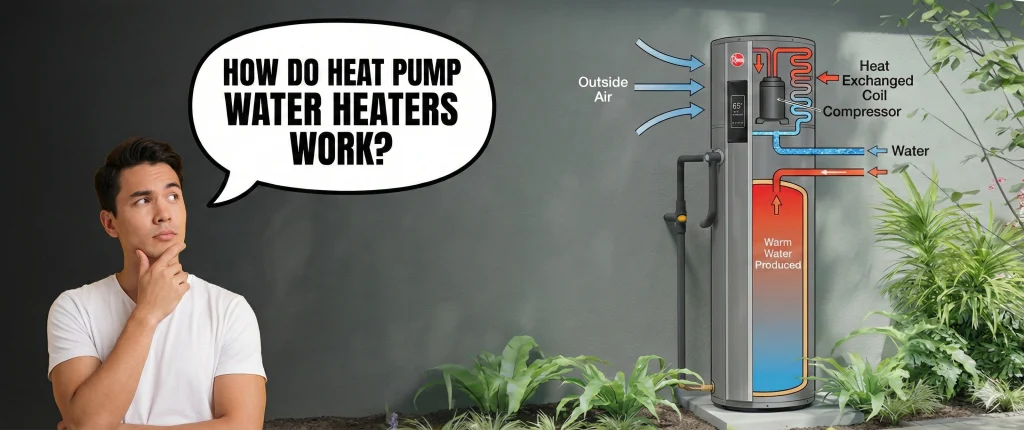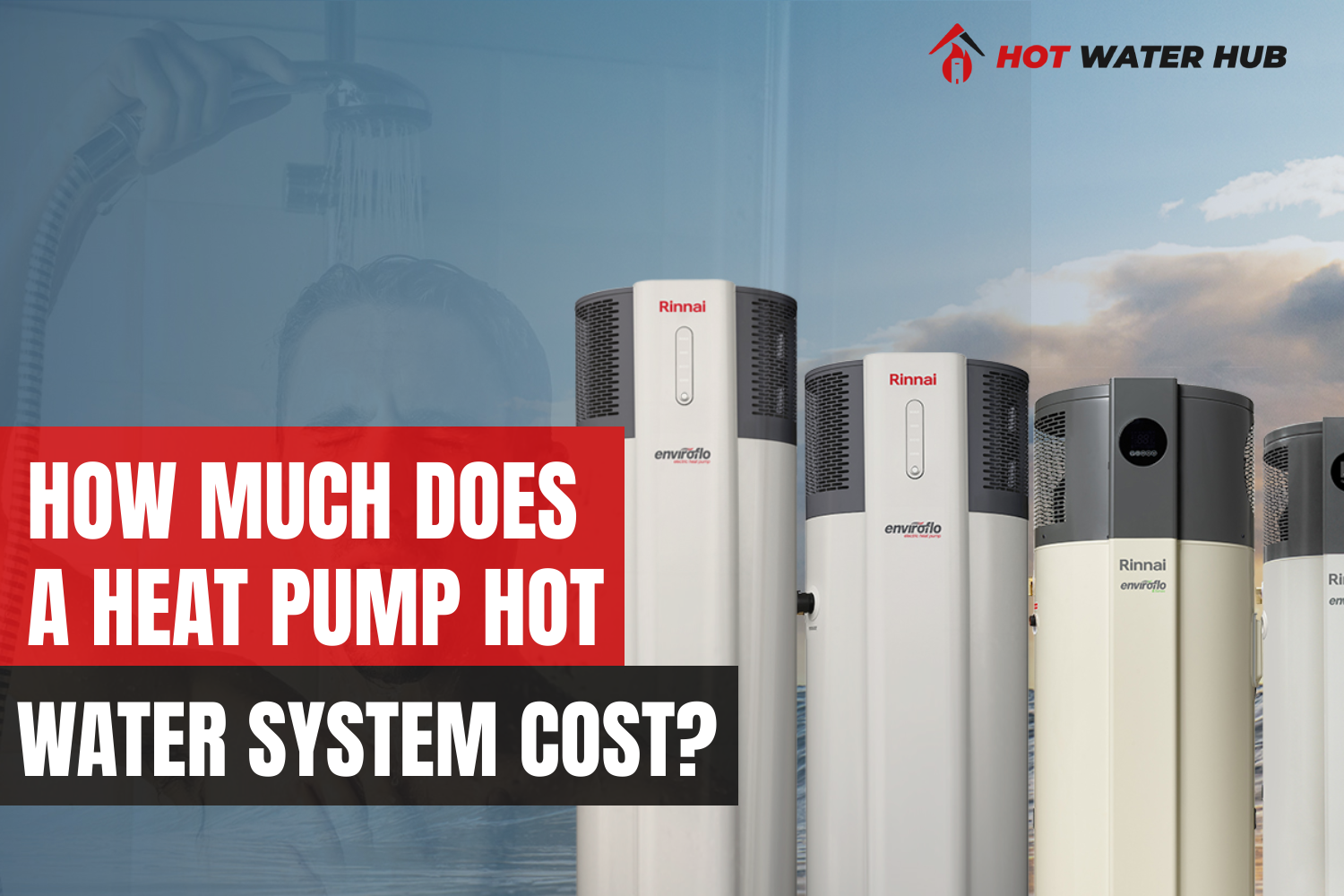
Ever wondered how you can heat your water using the air around you? It might sound like magic, but it’s […]

Looking for ways to cut down your water heating expenses?
A heat pump hot water system could be your solution.
If you are wondering what a heat pump hot water system is and how much it costs in Australia, then this article will be of great value to you.
This concise post will help you determine if a heat pump hot water system fits your needs and household.
In simple terms, a heat pump hot water system is a cool gadget that uses electric power to move heat. It doesn’t create heat; it just moves it from one space to another.
It pulls heat from the air around it and supplies it to the water in a container. This way, it’s pretty much like your fridge or air conditioner, but the process is reversed.
Two significant entities make up a heat pump hot water system.
One’s the heat pump module, which houses a fan, steam-maker, presser, and warmth-swapper. The second part is a water holder.
The design defines whether the water holder is part of the heat pump module or separate from it.
There are numerous elements that impact the initial investment associated with the installation of a heat pump hot water system.
Factors like the size of the system, whether it is an indoor or outdoor unit, the manufacturer, and installation complexities all play a role in determining the cost.
While a heat pump water heater has a higher upfront cost than a regular electric storage water heater, the cost is generally less than a solar hot water alternative.
According to choice, the average cost of buying a heat pump hot water system in Australia ranges between $2500 and $5500, excluding installation. The installation cost can vary depending on the complexity of the job, the location of the system and the availability of rebates.
Also read: What are the Pros and Cons of Heat Pump Water Heaters?
Some states and territories offer incentives for installing energy-efficient hot water systems, such as Small-scale Technology Certificates (STCS) and Victorian Energy Efficiency Certificates (VEECS).
These can reduce the upfront cost of a heat pump hot water system by hundreds or even thousands of dollars.
Additionally, there are various aspects that determine the operational expenses of a heat pump hot water heater, including the electricity rate structure, how well the system converts power into heat, the outside temperature, how much hot water is used every day, and routine service needs.
While a heat pump water heater generally uses less energy than a regular electric storage water heater since it can extract warmth from the outdoor air, it typically is not as efficient as a solar hot water system that harnesses free thermal energy from the sun.
The typical operating expenses of a heat pump hot water system in Australia extend from $0.25 to $0.50 per day, or somewhere in the range of $90 to $180 per year, without including support.
This is calculated on a normal power value of $0.30 per kWh and an average water utilisation of 200 L per day.
In reality, the working costs can significantly vary based on the real power value, the real water consumption, the framework of execution and the climate conditions.
For instance, heat pump hot water systems operate most efficiently in warm and damp atmospheres, where there is a lot of warmth in the air.
In cold and dry atmospheres, heat pump hot water units may require a booster component to heat the water, which adds to the power consumption and the operating expenses.
The daily running cost includes the electricity required to run the s compressor and circulation pump of the heat pump. Factors like local weather, insulation levels, and household water usage patterns can also impact electricity usage.
In colder regions, a booster element may occasionally be required to kick in and boost water temperature, marginally raising daily operating costs.
By understanding how installation location and household characteristics can influence performance and running expenses, homeowners can better prepare realistic budgets and expectations.
The answer to this question depends on your personal preferences, needs, your budget and your environmental impact. A heat pump hot water system can be a good option for you if:
However, a heat pump hot water system may not be the best option for you if:
Think about a heat pump hot water system as a sort of water heater that transfers heat from the air to the water, powered by electricity. Its selling points are being economical in the long run and gentle on energy use.
These features are particularly interesting if you live where it’s hot and damp, and you are eligible for discounts or incentives. On the other hand, the upfront cost and installation can be significant and sometimes falter compared to different water heating options.
It depends on your unique circumstances and preferences.
So, before you go ahead and install this system, it’s important to research thoroughly, complete your due diligence and properly weigh your alternatives.